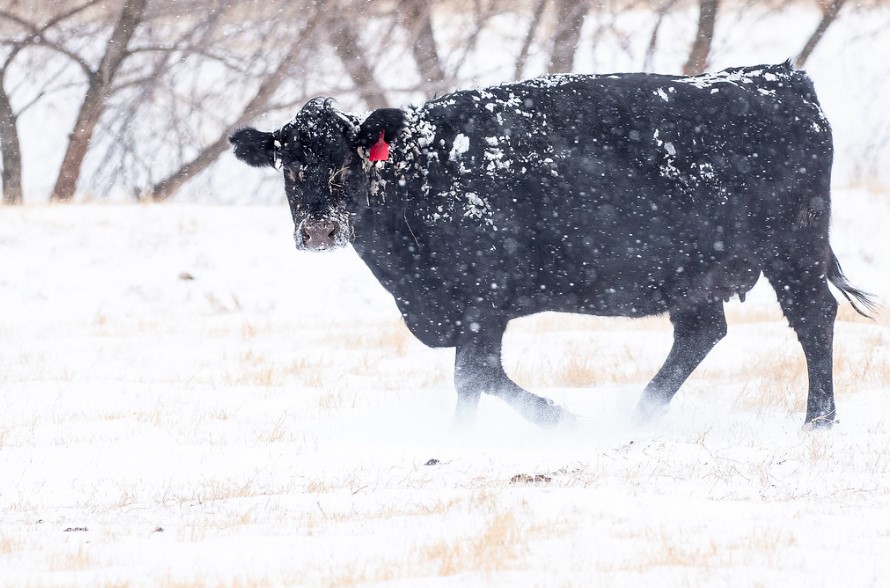
Farm Director, KC Sheperd, is talking with DVM, Oklahoma State University State Extension Beef Cattle Specialist, Rosslyn Biggs, about caring for livestock in cold weather and preparations to make beforehand. Biggs also talks about OSU’s study on internal parasites, the Integrated Beef Cattle Program, and the upcoming Oklahoma Veterinary Conference.
Biggs said older cows and baby calves will need the most care regarding shelter and nutrition during colder weather. Calves can sustain injuries due to freezing conditions that can impact their ears and more, Biggs added.
Bulls do not need to be forgotten during extreme cold weather either, Biggs said, as they can sustain injuries that can have a negative impact on breeding.
“Make sure we have bedding for these animals where they can get down and be warm and out of the wind,” Biggs said.
Biggs also stressed the importance of feeding cattle well before the cold weather hits and having backup plans for water issues. For calving during colder weather, Biggs said she likes to have a calving kit ready to go at all times.
The calving kit may be different for everyone, Biggs said, but it should consist of items such as medications, trash bags, colostrum, a veterinarian’s number, and more.
Biggs also gave an update on OSU’s study on internal parasites, which was first discussed in a previous interview.
The study began in the fall of 2023, Biggs said and evaluates the resistance of parasites in cattle of all ages.
Anthelmintic (dewormer) resistance is a growing concern, and OSU researchers are evaluating levels in Oklahoma beef cattle herds through ongoing studies. This research is important for the cattle industry in developing parasite management strategies that preserve the effectiveness of dewormers while maintaining cattle production levels for the future.
Ideally, Biggs said they are looking for at least 50 different groups of cattle from all over the state. Individual operations, depending on size, Biggs added, could have multiple groups within their operation.
For the study, Biggs said they are looking for groups of about 20 head of cattle in each group.
Biggs said producers will first use their routine dewormer, then fecal samples will be taken to see how well the dewormer worked on the cattle.
“We are trying to make sure that if you are using a product, it is effective,” Biggs said.
Producers interested in participating in the study can sign up and read more online at https://okstatecasnr.az1.qualtrics.com/jfe/form/SV_cAtiVIHwoLyow50
Producers can also sign up by contacting their local extension educators, or Dr. Rosslyn Biggs directly at rosslyn.biggs@okstate.edu.
Sheperd also talked with Biggs about the Integrated Beef Cattle Program at Oklahoma State University’s School of Veterinary Medicine. Biggs said the program is aimed at addressing the shortage of rural veterinarians and to provide more tools for veterinarians and students. Click the listen bar above the story to hear the full conversation


















